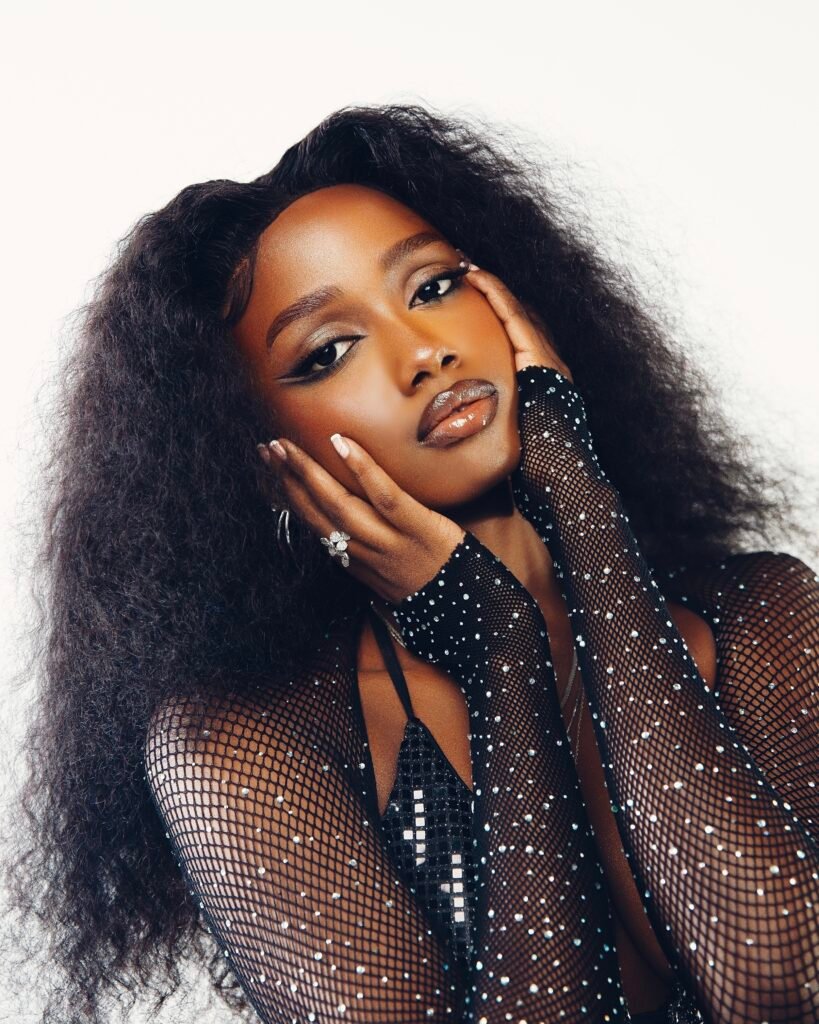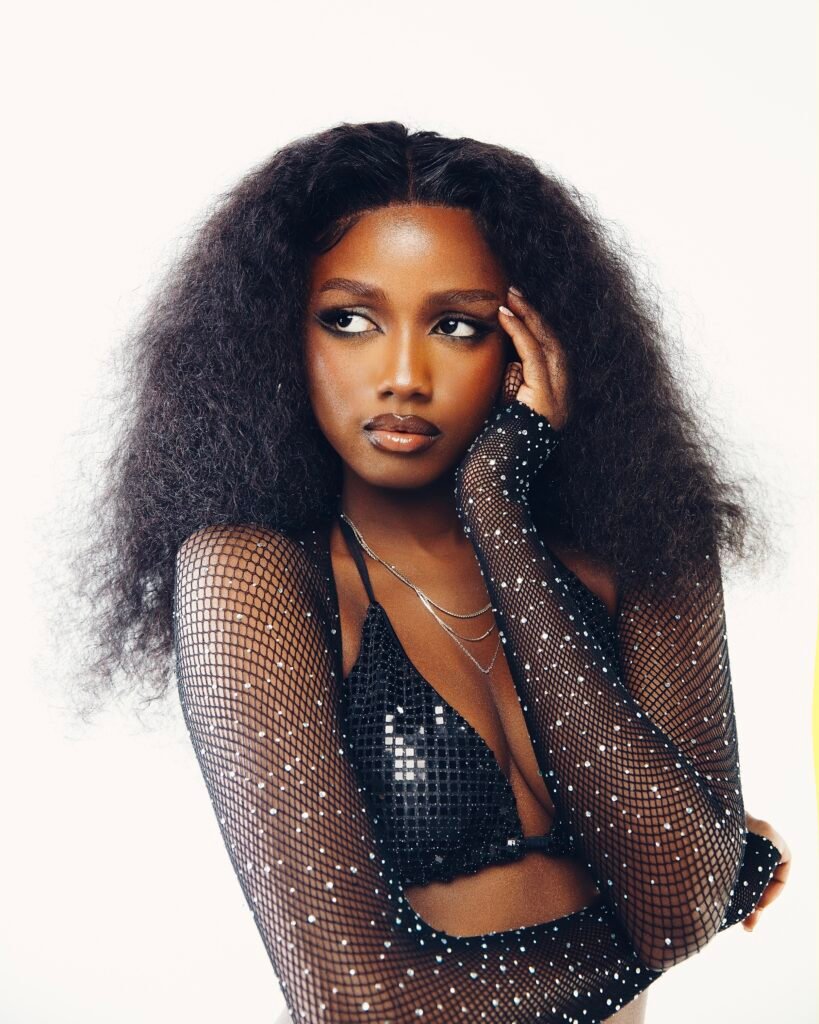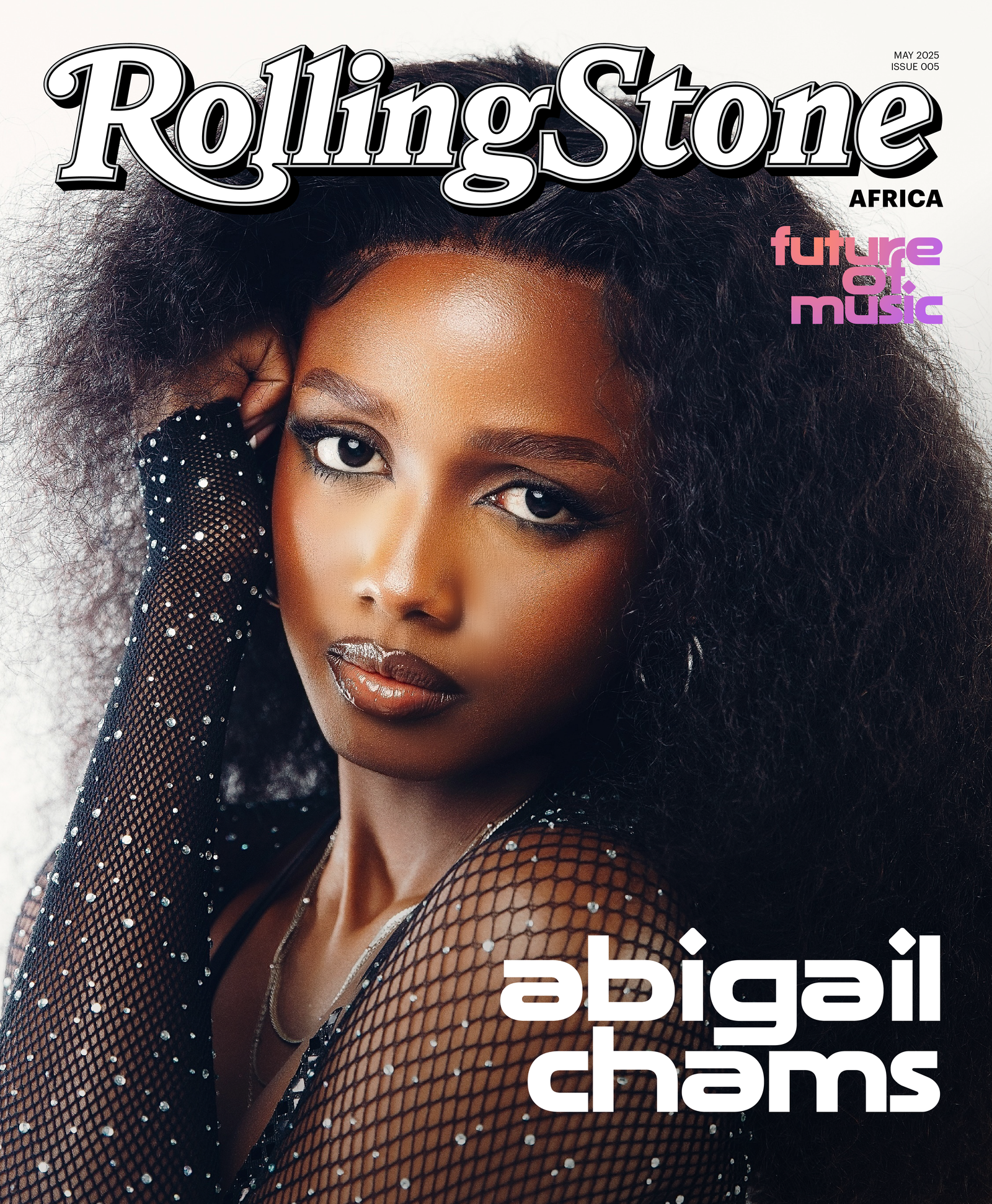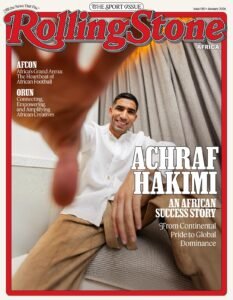Abigail Chams is a Tanzanian pop-star unto herself. Classically trained in five instruments and fluent in English, KiSwahili, and French, she is a stand-out act in the region’s music landscape. Sony Music Africa noticed her talent early, signing her in 2022, with only one single under her belt. Since then, she has released an EP and had several hit singles with Tanzanian giants like Harmonize, Marioo, and Rayvanny, solidifying herself as one of the region’s most promising pop exports. This year, she made history as the first female East African artist to be nominated for a BET Award, earning her nod in the ‘Best New International Act’ category.
In today’s fast media landscape, Abigail’s output has been intentionally slower; prioritizing mindful experimentation and artistic development. “I’ve always believed that true artistry doesn’t come from rushing the process but from creating with intention,” she says. This mindfulness is also evident in her advocacy work which is an essential arm of her creative practice. She runs a youth mental health program called The Talk with Abigail Chams, destigmatizing conversations around mental health.
Her sound is a rich Afro-RnB coated with Tanzanian influences like Taaraab and Bongo Flava and the occasional Amapiano – all of which are on full display on her debut 2023 EP “5” which served as an introduction to her musical world. Her latest single Me Too featuring Harmonize signals the natural maturation of this musical world. Familiar soulful Afro production with an elevated vocal and melodic element. In their second musical collaboration, Abigail and Harmonize trade heartfelt verses embracing a shared connection in the face of outward dissaproval. Abigail’s voice glides delicately to deliver an earworm of a hook. It is her biggest song to date, with 10s of millions of streams across platforms.
Abigail is now ready to step fully into the light. As one of our Future of Music cover artists, RSA, spoke with the rising star about her growth, perspective on the industry, and vision for the future.

"It’s more important to me to create music that has substance than to conform to trends.”
Abigail Chams
You’ve been selected as part of Rolling Stone Africa’s “Future of Music.” What does it mean to you to be recognized as an artist who represents the future of music?
Being recognized as part of Rolling Stone Africa’s “Future of Music” is incredibly humbling and inspiring. It means that my journey as an artist is resonating not just with my immediate community, but with a broader, global audience. Music is always evolving, and I feel incredibly fortunate to be part of this movement—pushing boundaries, blending genres, and creating something authentic that reflects my culture and experiences. I believe this recognition is a call to keep pushing forward, and to be part of shaping the future of music with a unique voice from Africa.
How do you see the evolution of African music in recent years?
African music has undergone a massive transformation in recent years. It has grown from being appreciated mainly within local borders to a global phenomenon, influencing artists worldwide. Genres like Afrobeat, Amapiano, and Bongo Flava have not only crossed cultural boundaries but are also being integrated into global charts and collaborations. There’s a sense of pride and identity being carried through the music, and it’s wonderful to see African sounds influencing global pop, hip-hop, and R&B. I think we’re witnessing a beautiful fusion of traditional and modern, and this gives African artists the platform to be true pioneers in the music world.
What excites or challenges you about these changes, and how do you imagine the future of Afro-Caribbean music? Are there any artists or trends you think we should keep an eye on?
What excites me most is how African music is becoming an undeniable force in global pop culture. The fusion of Afro-Caribbean, Afrobeat, and other African sounds with international genres is incredibly dynamic and creates a fresh musical landscape. As exciting as this is, the challenge lies in staying authentic while navigating these fast-paced changes. It’s essential to hold on to the roots and messages that made these genres so impactful. I see Afro-Caribbean music continuing to evolve, bridging the gap between cultures and genres, and leading to even more diverse collaborations. Artists like ABIGAIL CHAMS are definitely ones to watch—they’re pushing boundaries and challenging the status quo in such powerful ways.
If you could imagine a truly futuristic or unexpected collaboration — or simply one you’d be proud to share with your community in the coming years— which African or international artist would you choose, and why?
I’d choose Beyoncé. She’s an artist I’ve always looked up to for inspiration, her work ethic is unmatched, and when she reposted my cover of “Brown Skin Girl” from The Gift album, it was a huge moment I could never forget. Her blend of genres, powerful vocals, and unmatched stage presence would bring a fresh energy to any project. Plus, her ability to fuse African sounds with mainstream appeal, like she did with The Lion King: The Gift, shows her commitment to celebrating and amplifying African culture. Collaborating with Beyoncé would bring both artistic depth and a global platform to showcase African music and talent.
In a media space that is so fast-paced and increasingly saturated, it is refreshing to see how patient and intentional you have been with your creative output since you debuted in 2020. Was this an intentional decision on your part?
Yes, it was both intentional, trusting in God’s timing throughout the process. I’ve always believed that true artistry doesn’t come from rushing the process but from creating with intention. My goal is to build a lasting, meaningful connection with my audience through music that speaks to the heart. The fast-paced nature of the industry can sometimes lead to distractions, but I want my music to reflect my true self, and that requires time, reflection, and careful consideration. It’s more important to me to create music that has substance and authenticity than to conform to trends or timelines.
What can we expect from you this year?
This year, I’m really excited to share new music with my fans that takes my sound to the next level. I’ve been experimenting with different genres and sounds, blending my Tanzanian roots with some exciting new influences. There will be a lot of surprises, collaborations, and growth—expect some powerful storytelling through both my music and visuals that dive deeper into the topics that matter most to me.
Your advocacy work as it relates to mental health and gender equality has long been central to your story. How do you plan on continuing this work and incorporating it into your musical world as you grow in your career?
Advocacy will always be at the core of what I do. Mental health and gender equality are issues that need more voices and action. As I continue to grow in my career, I plan to use my platform to highlight these causes—whether through the themes in my music, collaborations with organizations, or direct engagement with my community. One of the ways I’ve already started this work is through my youth mental health program, The Talk with Abigail Chams. It aims to raise awareness, break the stigma, and create a safe space where young people know it’s okay not to be okay. Having personally struggled with anxiety myself, I want to encourage others to reach out for help and TALK. I hope to create not only music that empowers and uplifts but also spaces where conversations about mental health and gender equality can happen more openly. Music has a unique ability to heal, inspire, and bring people together, and I want to ensure that the messages I put out contribute to these ongoing conversations and social change.






